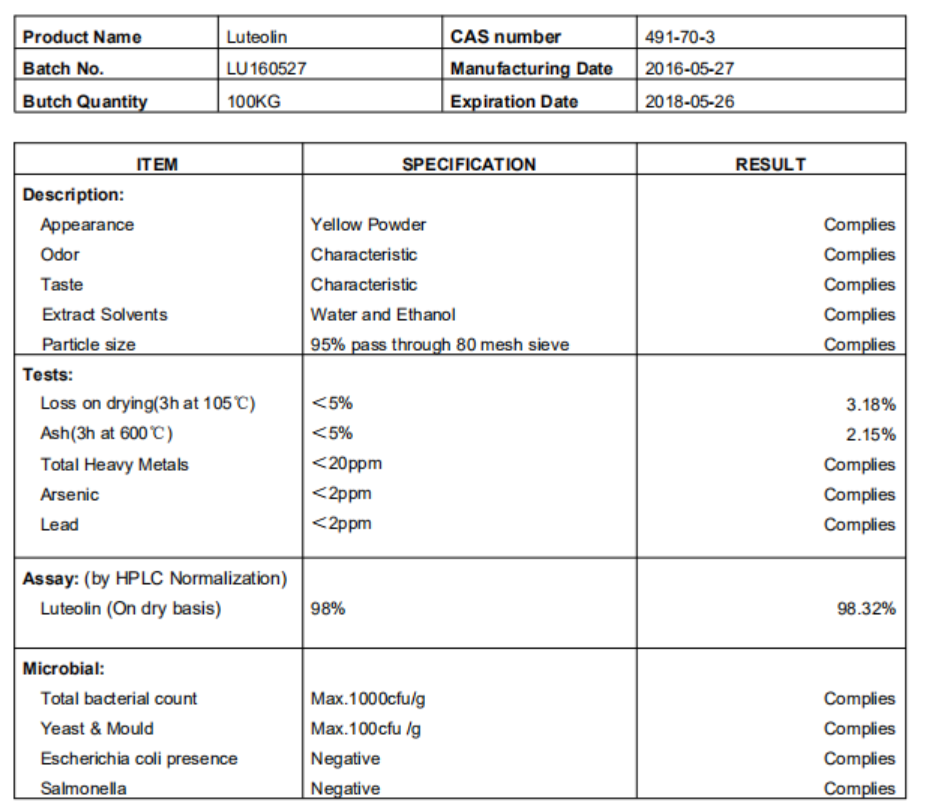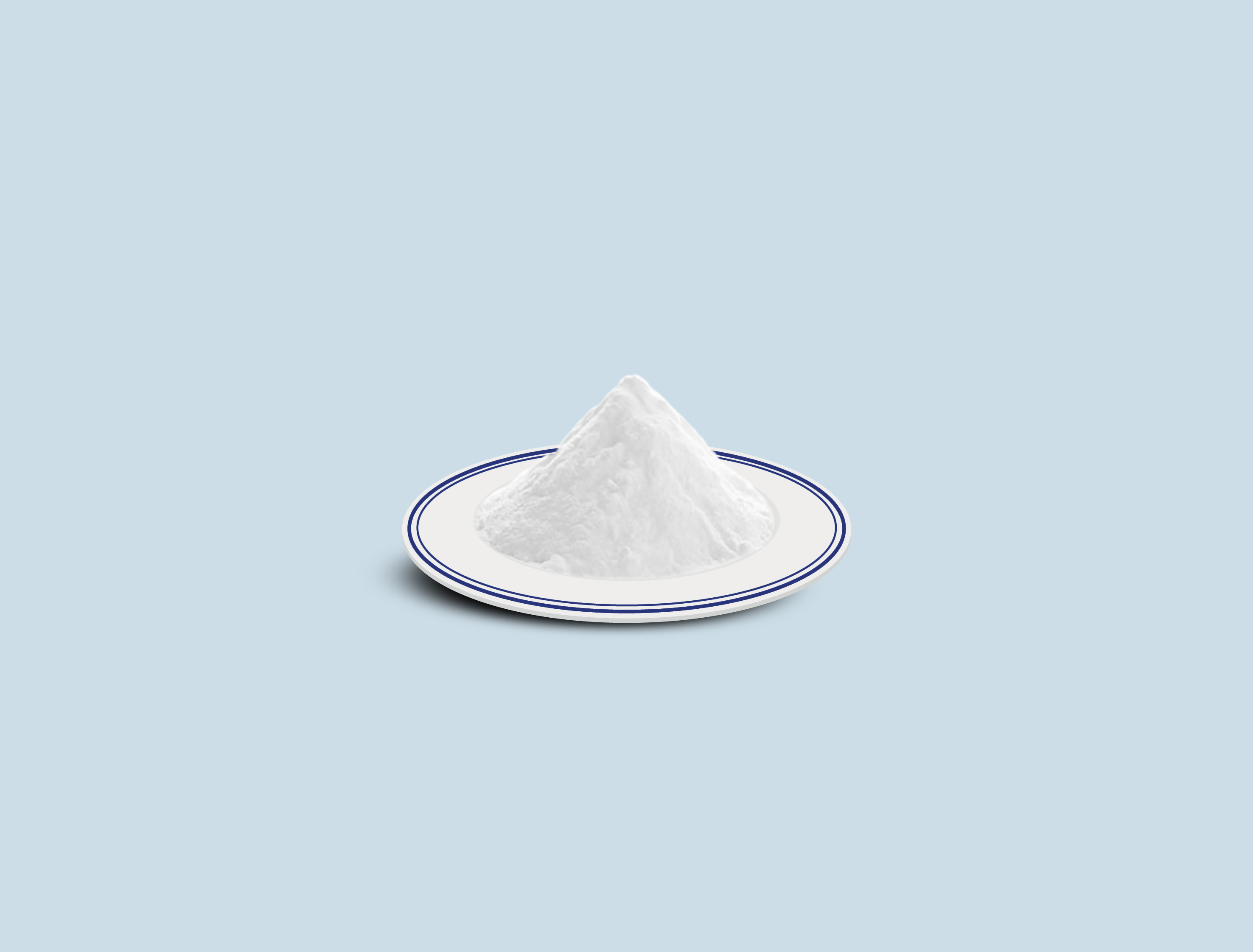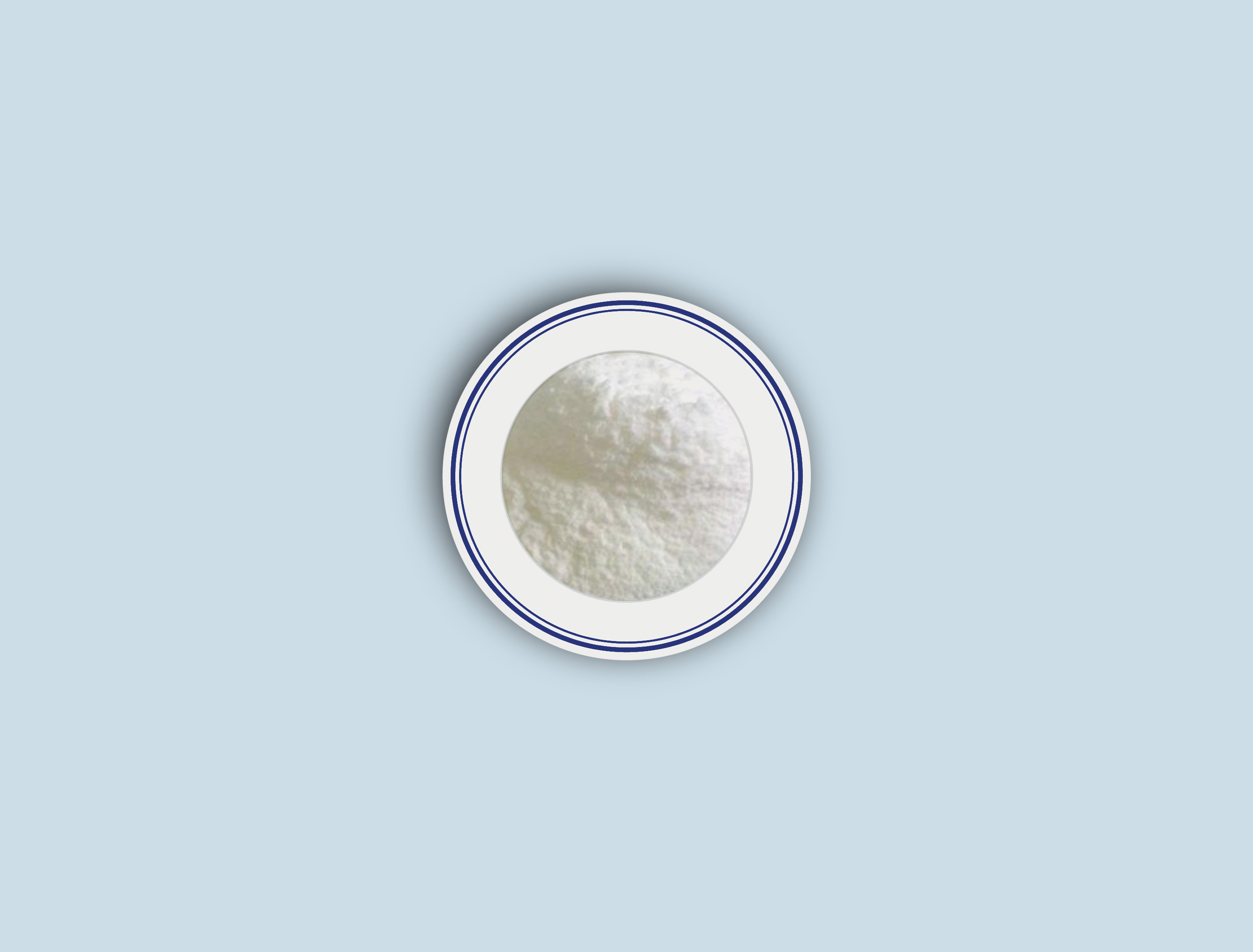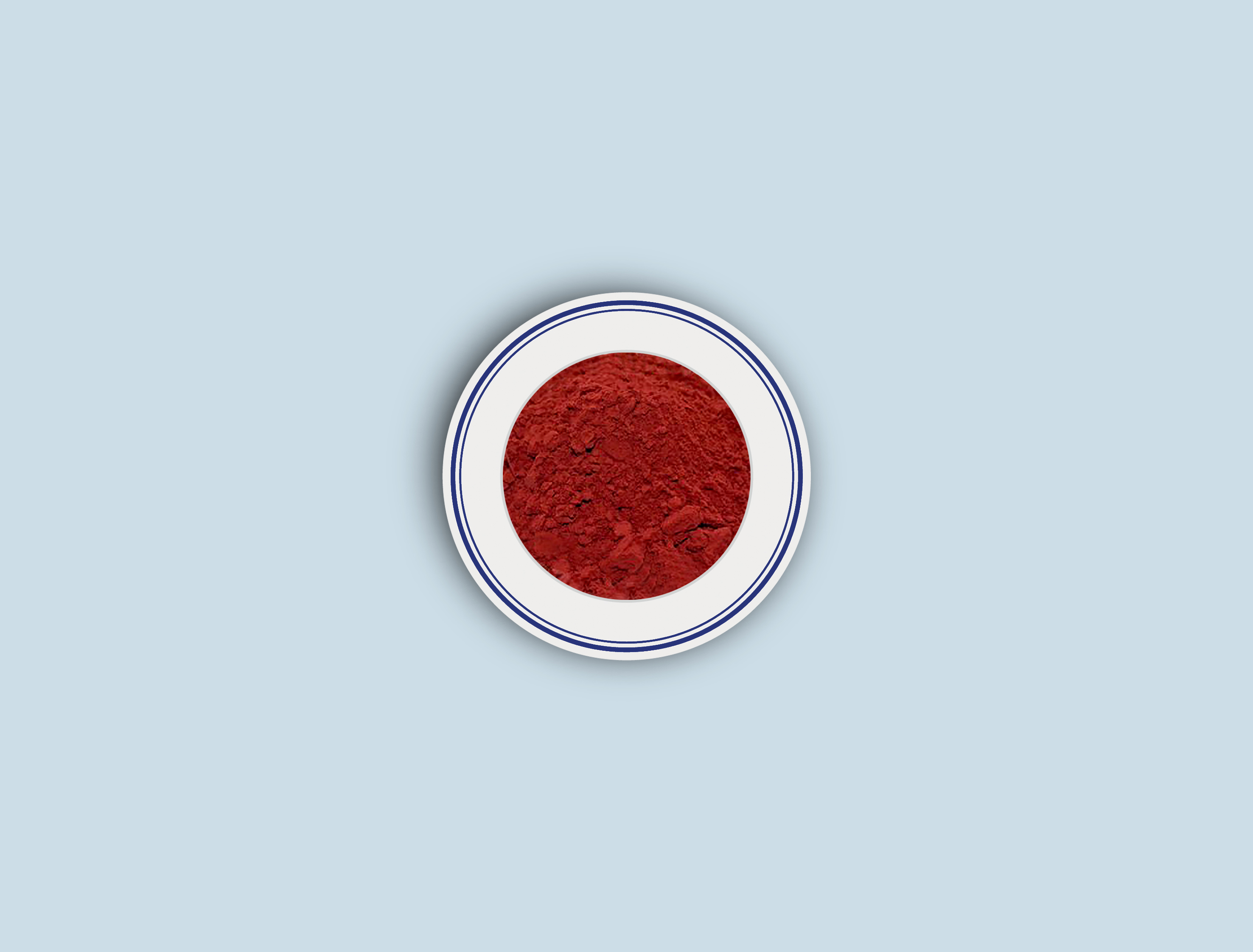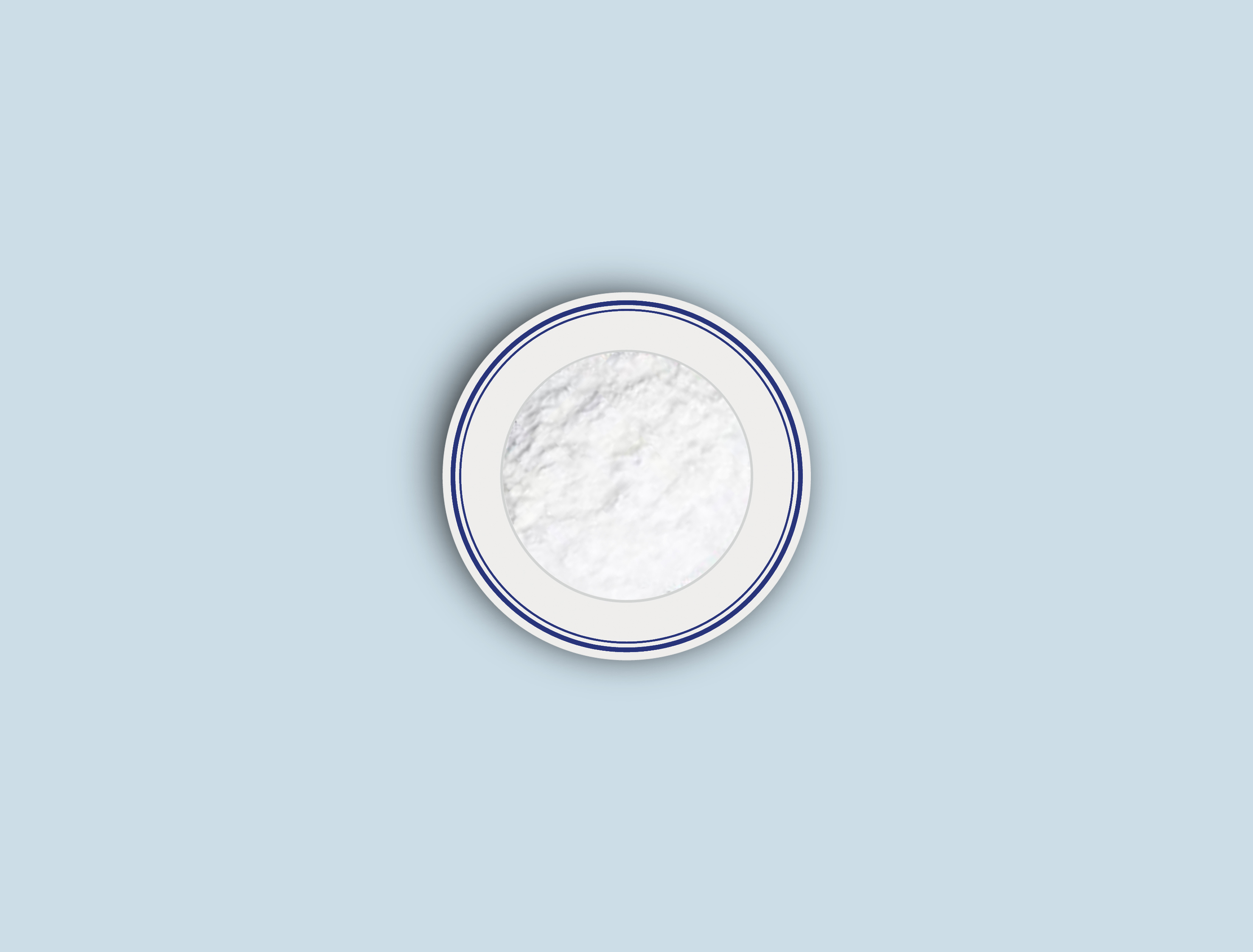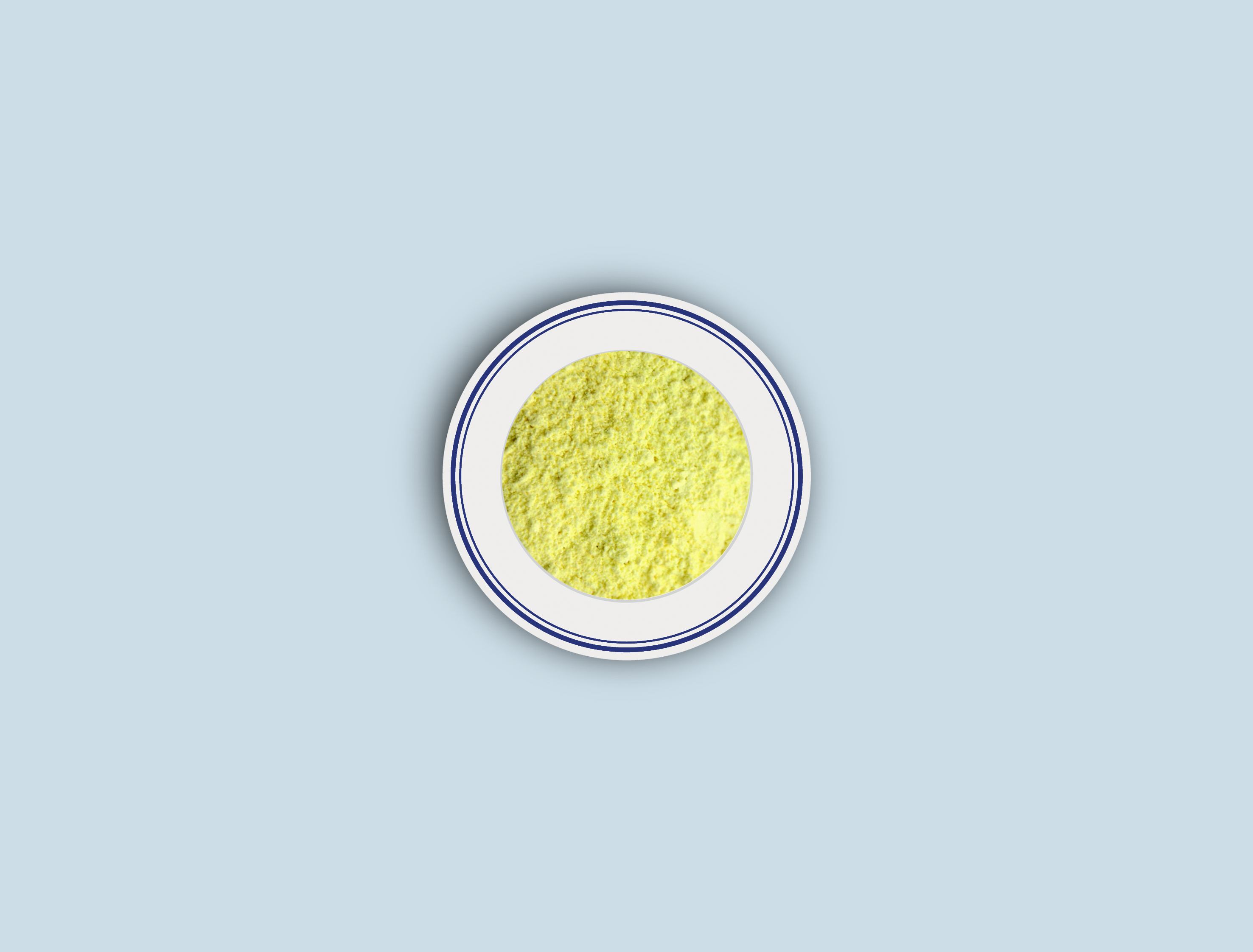
Luteolin
Latin Name: Arachis hypogaea L.
Specification:20%,90%, 98%
Color: Yellow powder
CAS No.:491-70-3
Molecular Formula:C15H10O6
Molecular Weight:286.24
Description
Overview
Luteolin is a common flavonoid that exists in many types of plants, including fruits, vegetables, and medicinal herbs. Plants rich in luteolin have been used in Chinese traditional medicine for treating various diseases such as hypertension, inflammatory disorders, and cancer. Having multiple biological effects such as anti-inflammation, anti-allergy and anticancer, luteolin functions as either an antioxidant or a pro-oxidant biochemically. The biological effects of luteolin could be functionally related to each other. For instance, the anti-inflammatory activity may be linked to its anticancer property.
Benefits
1) Luteolin Fights Cancer
Luteolin interferes with nearly all types of cancer cells. It inhibits the growth of new blood vessels in tumors, the metabolism of carcinogens, as well as stops the progression of the cell cycle in cancer cells. Luteolin also induces cell death in cancer cells.
2) Luteolin Decreases Inflammation
Luteolin is also found to suppress two major pathways involved in response to inflammation, which greatly reduces both acute and chronic inflammation.
3) Luteolin is an Antioxidant
Luteolin is an oxygen scavenger. It was found to inhibit reactive oxygen species, which induce damage to lipids, DNA, and protein.
Luteolin significantly induces genes related to antioxidant defense.
4) Luteolin is a Natural Sun Protectant
Luteolin potently inhibited UVB-induced MMP-1 expression and wrinkle formation in vitro and in vivo and, therefore, may be used to prevent UVB-induced skin aging.
5) Luteolin Improves Heart Function
Luteolin substantially increased cell life while reducing evidence of oxidative stress-induced damage in the cells.
Luteolin also improved the recovery of heart cells contracting function following simulated injury caused by loss of blood flow by reducing oxidative stress.
6) Luteolin Protects the Brain From Neurological Impairments
Luteolin induces neurite outgrowth through CREB activation. CREB activation is the mechanism underlying its effects on memory enhancement.
Luteolin can go through the blood-brain barrier (BBB), which shows anti-amnesic effects against the toxicity of amyloid in mice.
7) Luteolin is an Antiviral
Luteolin was found to have potent antiviral activity against the Japanese encephalitis virus (JEV).
In mice with hepatitis B virus (HBV), Luteolin reduced HBV DNA replication, suggesting that it may be used for anti-HBV therapy.
8) Luteolin Prevents Cataracts
In rats, luteolin enhanced the antioxidant potential and lowered the oxidative damage to the lens of rats in selenite-induced cataracts. It also improved the membrane integrity of the lens.
9) Luteolin May Be Therapeutic for Multiple Sclerosis
10) Luteolin Inhibits Mast Cells
11) Luteolin Has Anti-Depressant Effects
Characteristics
